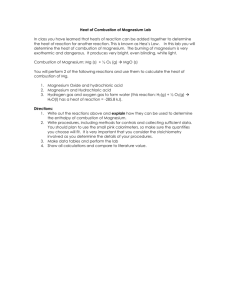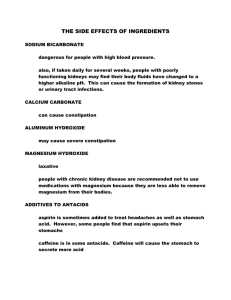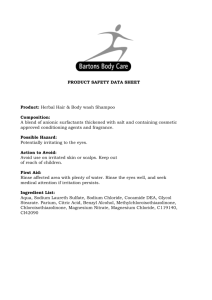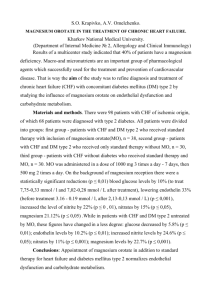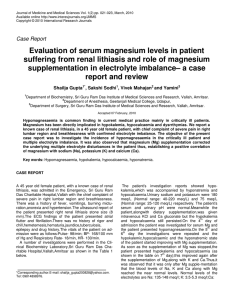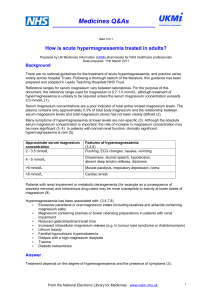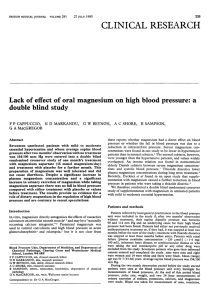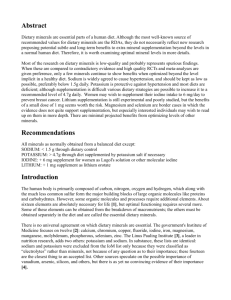The effect of magnesium supplementation on blood
advertisement
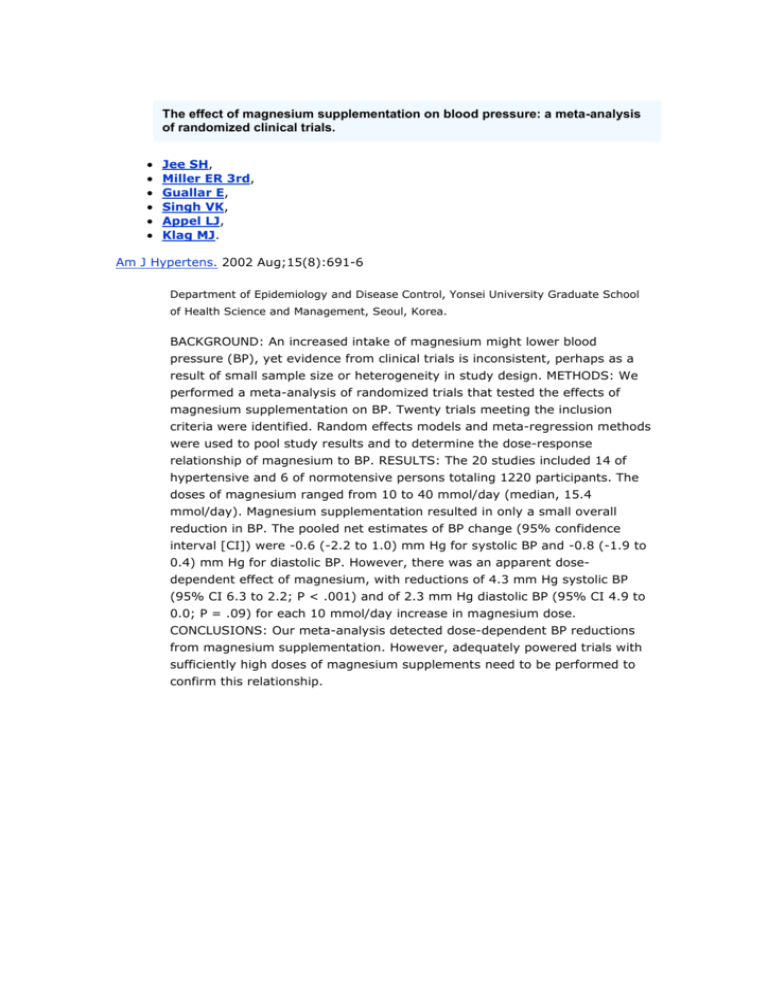
The effect of magnesium supplementation on blood pressure: a meta-analysis of randomized clinical trials. Jee SH, Miller ER 3rd, Guallar E, Singh VK, Appel LJ, Klag MJ. Am J Hypertens. 2002 Aug;15(8):691-6 Department of Epidemiology and Disease Control, Yonsei University Graduate School of Health Science and Management, Seoul, Korea. BACKGROUND: An increased intake of magnesium might lower blood pressure (BP), yet evidence from clinical trials is inconsistent, perhaps as a result of small sample size or heterogeneity in study design. METHODS: We performed a meta-analysis of randomized trials that tested the effects of magnesium supplementation on BP. Twenty trials meeting the inclusion criteria were identified. Random effects models and meta-regression methods were used to pool study results and to determine the dose-response relationship of magnesium to BP. RESULTS: The 20 studies included 14 of hypertensive and 6 of normotensive persons totaling 1220 participants. The doses of magnesium ranged from 10 to 40 mmol/day (median, 15.4 mmol/day). Magnesium supplementation resulted in only a small overall reduction in BP. The pooled net estimates of BP change (95% confidence interval [CI]) were -0.6 (-2.2 to 1.0) mm Hg for systolic BP and -0.8 (-1.9 to 0.4) mm Hg for diastolic BP. However, there was an apparent dosedependent effect of magnesium, with reductions of 4.3 mm Hg systolic BP (95% CI 6.3 to 2.2; P < .001) and of 2.3 mm Hg diastolic BP (95% CI 4.9 to 0.0; P = .09) for each 10 mmol/day increase in magnesium dose. CONCLUSIONS: Our meta-analysis detected dose-dependent BP reductions from magnesium supplementation. However, adequately powered trials with sufficiently high doses of magnesium supplements need to be performed to confirm this relationship.



